Committee Okays $5 Million More for Ikon Hotel
But only after a debate as to whether a project in the city's black community is "risky."
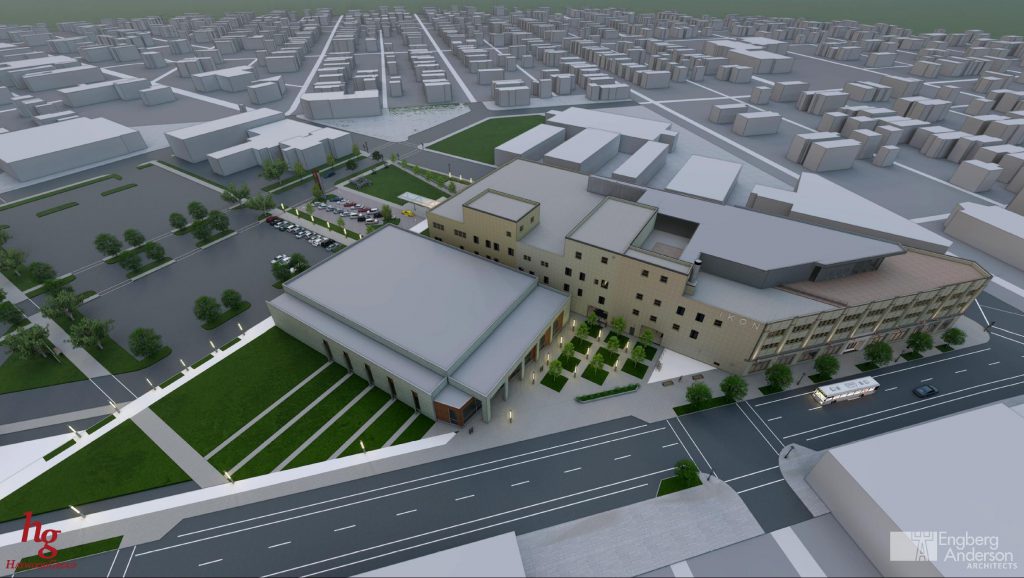
One MKE Plaza/Ikon Hotel rendering. Rendering by Engberg Anderson Architects.
The Common Council’s Zoning, Neighborhoods & Development Committee unanimously approved an additional $5 million to support developer Kalan Haywood‘s One MKE Plaza proposal, bringing the city’s total to $9 million. But despite the unanimous vote, the committee spent over a half hour debating the merits of the project and a report from independently-elected City Comptroller Martin Matson that deems the funding a “significant risk.”
The $36 million project, from the Haywood Group, is centered around the redevelopment of the former Sears department store at W. Fond du Lac Ave. and W. North Ave. into the 80-room Ikon Hotel, conference center and co-working space, and will rely on a variety of funding sources.
The city approved a $4 million loan in May to kickstart the work, and Department of City Development Commissioner Rocky Marcoux said at the time that an additional funding allocation would ultimately be needed when a final project budget was assembled. The additional $5 million would be added, as a second mortgage, after Haywood secures $15.5 million from a bank loan and Opportunity Zone equity investors. The funds would come from a tax-incremental financing (TIF) district created for the project.
“We are certainly excited to move this forward,” said Marcoux. “One of the reasons we are bringing this forward now is he needs to have confidence in dealing with banks.”
“It does not go into the deal until all the other pieces of the financing puzzle are in place,” added the commissioner. “We have protected the taxpayers’ interest in a meaningful way.”
Bauman noted that a comptroller’s report, prepared as standard practice on every TIF deal, labeled the deal as risky. “And maybe that’s okay. We make that policy judgment.”
A report from the comptroller’s office raises concerns about the expanded funding should Haywood not secure that conventional funding to advance the project. “We’re seeing that with The Couture project right now,” said Special Assistant to the comptroller Joshua Benson. The report states the additional funds would be protected, but the city’s initial funding could be lost.
Benson also noted there is concern with the amount of revenue projected to come from food and beverage sales in a proforma prepared by an outside consultant. Labeling it “aggressive,” Benson noted the report states 52.5 percent of income will come from food and beverage, but the comptroller’s office found an industry average of 25.8 percent.
But such concerns set off a discussion on the merits of even discussing the report and the unique nature of the development.
“If every time we talk about a project in our community it’s referred to as ‘risky’ it becomes offensive,” said Alderwoman Milele A. Coggs, an African American.
“We know the industry average may not be comparable to the Ikon hotel deal,’ said Coggs. “The average hotel is not on Fond du Lac Avenue. The average hotel does not have the same demographics.”
DCD economic development specialist Dan Casanova said the figure on food and beverage sales was high because of the large number of events anticipated to occur at the 24,000-square-foot conference space. Said Haywood: “What we’re really building is a conference center and event space that happens to have a hotel.”
“The essence of the TIF being needed is because there is a level of risk to it,” said Haywood. He said that risk was inherent in all TIF deals.
Marcoux emphasized why the risk was worth it. “I think it’s high time we stop having award ceremonies designed to support the central city of Milwaukee and we have to go to the Third Ward because there isn’t a suitable space on the northwest side,” he said.
Alderman Russell W. Stamper, II expressed displeasure with Bauman’s comments, despite Bauman’s repeated statements that he would support the deal. “It’s unfair and it’s misleading,” said Stamper.
“There’s something interesting about that. I don’t want to get into details about that because we’re in public,” said Stamper about Bauman’s comments. Bauman is the only white member of the committee.
“I want you to show the same concern when the streetcar is before us,” said Stamper. But Bauman said the exact opposite is going on with The Hop. “We now have opposition to the streetcar that the streetcar is successful in generating incremental taxes,” said Bauman of concerns of gentrification along the route of planned extensions.
“I’m very well aware of the disparities that occur in prospering areas of the city and areas that have suffered from blight and disinvestment,” said Bauman, while noting he lived in the latter. “The citizens of Milwaukee are entitled to know the facts.”
“The dialogue we’re seeing here is exemplary of a much greater problem than just this one deal,” said Coggs. “What some people see as risk is what other people see as ‘its about time’.”
With Comptroller Matson having arrived, Coggs, an attorney, questioned the comptroller on his process.
“I believe my job is to provide as much objective financial information as I can,” said Matson. He noted he wasn’t tasked with providing policy advice, whether he agreed with it or not. He said he’s only written one TIF report that didn’t label the district as a risk.
Matson said his original report from April labeled the project a risk because there was no information to work with.
After a heated debate about a project all of the committee’s members actually support, the committee unanimously endorsed the deal.
“Our vote is really a statement that those years of the disinvestment in our community should be no more,” said Coggs. “We know the history, let’s not repeat.”
Haywood said JCP Construction would be seen on the site over the next few months performing demolition work on the building’s upper floors to prepare the project for future construction.
Renderings
Interior Photos
Exterior Photos
If you think stories like this are important, become a member of Urban Milwaukee and help support real independent journalism. Plus you get some cool added benefits, all detailed here.
Legislation Link - Urban Milwaukee members see direct links to legislation mentioned in this article. Join today
If you think stories like this are important, become a member of Urban Milwaukee and help support real, independent journalism. Plus you get some cool added benefits.
Related Legislation: File 190774
More about the One MKE Plaza project
- Eyes on Milwaukee: IKON Hotel Dropped In Favor of ‘Sears Market’ Concept - Jeramey Jannene - Aug 17th, 2023
- Eyes on Milwaukee: IKON Hotel Deal At Risk of Default - Jeramey Jannene - Jul 26th, 2022
- Eyes on Milwaukee: IKON Hotel Gets Loan Extension - Jeramey Jannene - Aug 19th, 2021
- Eyes on Milwaukee: Developer Assembling Land for Ikon Hotel - Jeramey Jannene - Oct 1st, 2019
- Eyes on Milwaukee: Council Approves Ikon Hotel Deal Despite Objections - Jeramey Jannene - Sep 24th, 2019
- Eyes on Milwaukee: Committee Okays $5 Million More for Ikon Hotel - Jeramey Jannene - Sep 17th, 2019
- Eyes on Milwaukee: Council Okays Subsidy for One MKE Plaza - Jeramey Jannene - May 7th, 2019
- Eyes on Milwaukee: Committee Okays City Funds for Ikon Hotel - Jeramey Jannene - Apr 30th, 2019
- Eyes on Milwaukee: 7 Takeaways From Ikon Hotel Deal - Jeramey Jannene - Mar 28th, 2019
- Eyes on Milwaukee: Old Sears Building to Become New Hotel - Jeramey Jannene - Mar 27th, 2019
Read more about One MKE Plaza project here
Political Contributions Tracker
Displaying political contributions between people mentioned in this story. Learn more.
Eyes on Milwaukee
-
Church, Cupid Partner On Affordable Housing
 Dec 4th, 2023 by Jeramey Jannene
Dec 4th, 2023 by Jeramey Jannene
-
Downtown Building Sells For Nearly Twice Its Assessed Value
 Nov 12th, 2023 by Jeramey Jannene
Nov 12th, 2023 by Jeramey Jannene
-
Immigration Office Moving To 310W Building
 Oct 25th, 2023 by Jeramey Jannene
Oct 25th, 2023 by Jeramey Jannene


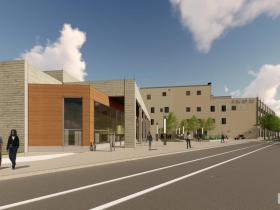
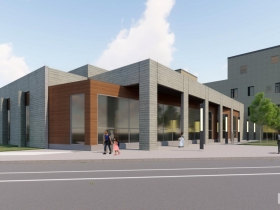
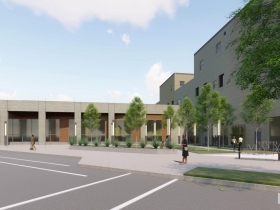
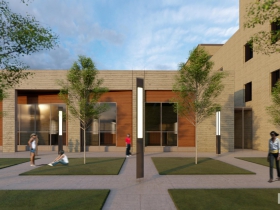
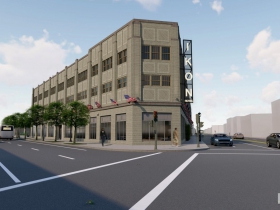
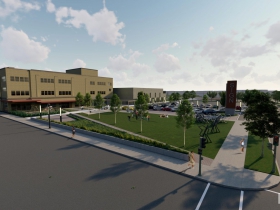
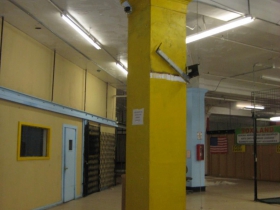
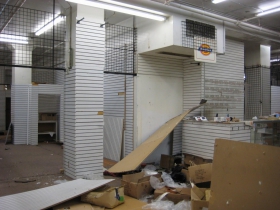
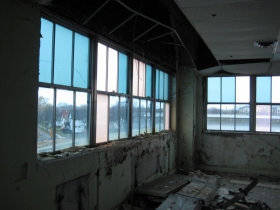
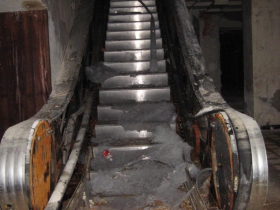
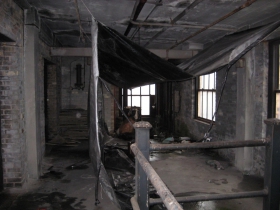
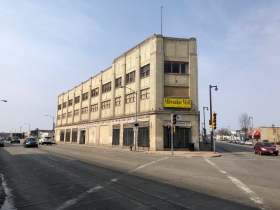
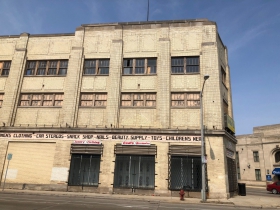
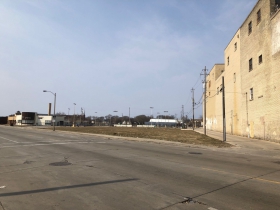
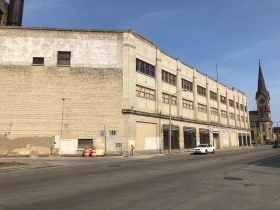
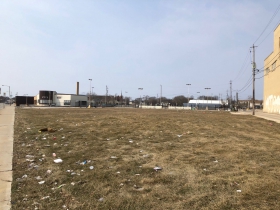
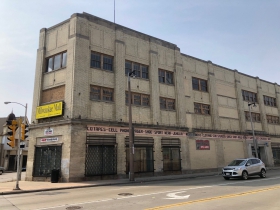




















I applaud the counsel in supporting this project. We need more investment in the neighborhoods. There is more to Milwaukee than the downtown area.